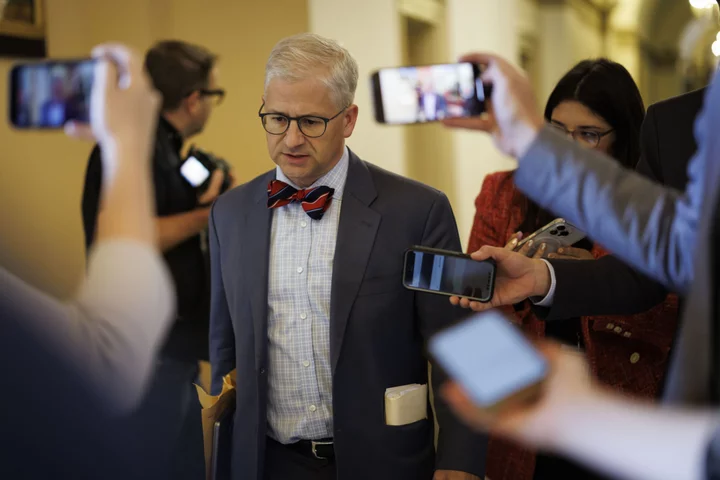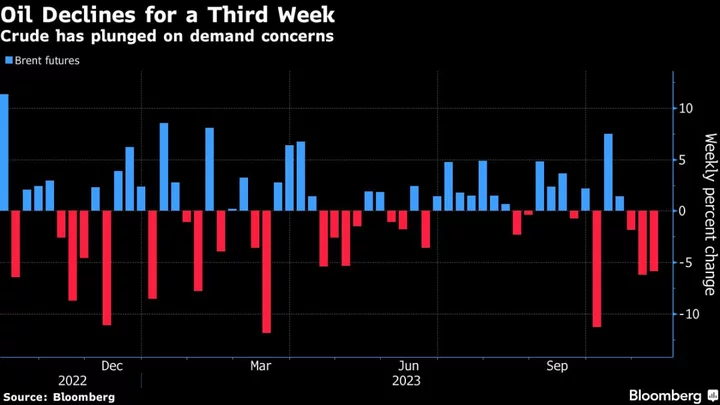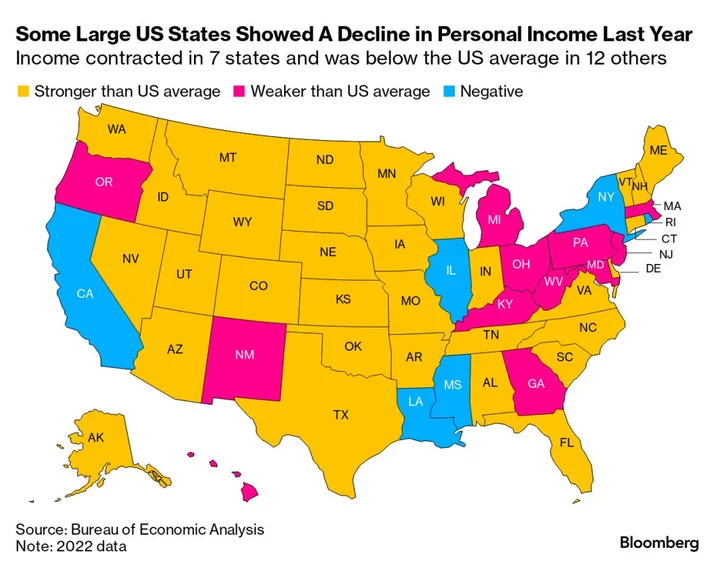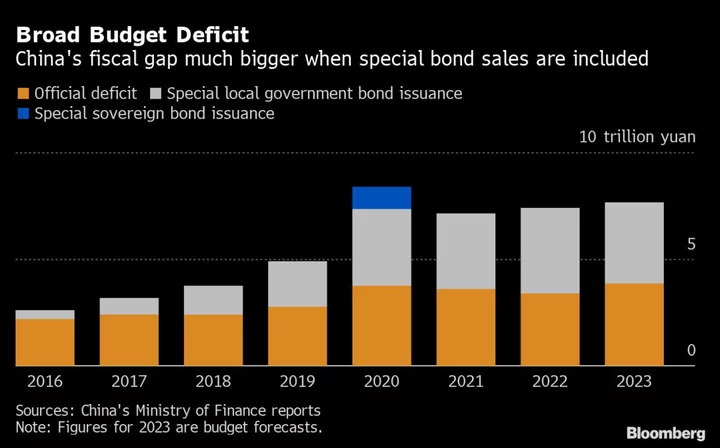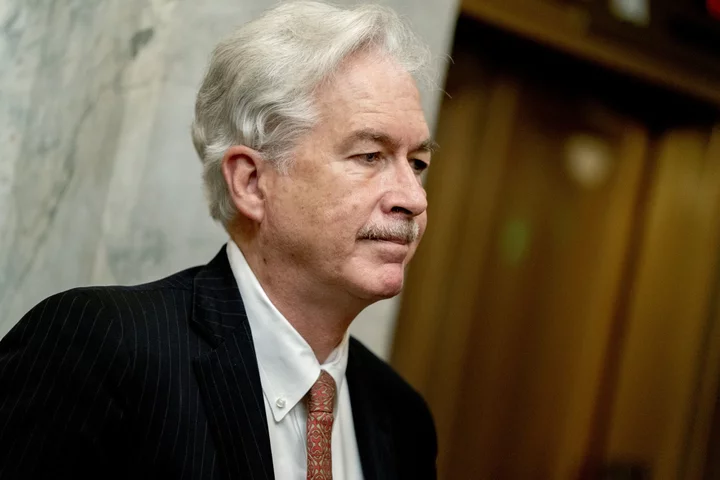Getting a US debt-limit deal is one thing. Overcoming entrenched political divisions and time-consuming procedural hurdles to pass the legislation before a June 5 default deadline is another challenge altogether.
The deal struck Saturday night by President Joe Biden and Speaker Kevin McCarthy offers a lot for the two parties not to like, from expanded work requirements for food stamps opposed by Democrats to higher spending levels than conservatives demanded.
With just over a week until the US risks running out of cash to pay its bills, the two leaders now must convince enough members of their respective parties that the agreement hashed out by a small group of negotiators is a better deal than the global economic consequences of default.
Biden and McCarthy in separate appearances on Sunday projected confidence they would muster the votes to win Congressional approval. McCarthy claimed 95% of House Republicans are “very excited” by the deal.
Some members of the ultra-conservative House Freedom Caucus ratcheted up criticism of the deal Sunday, though it was unclear whether their hostility would broaden to wider Republican opposition or harden into a campaign to oust the speaker.
Representative Chip Roy of Texas tweeted Sunday that fellow Republicans “haven’t been educated yet on” the deal’s shortcomings. “They will be,” he said. Shortly after the deal was announced Saturday, Ralph Norman of South Carolina called it “insanity” and Dan Bishop of North Carolina responded with an emoji of a face vomiting.
Still, there were early signs of openness to the deal even from some on the GOP’s right flank. Representative Warren Davidson applauded “some impressive wins” but said he would wait to see the bill’s text before making up his mind.
A time-consuming, last-minute revision or a failure on the House floor risks a market dive, as happened when the 2008 bank bailout legislation failed to pass.
McCarthy has said he’d abide by a 72-hour rule to allow lawmakers to review legislation and is planning a House vote on Wednesday.
In the Senate, any one lawmaker can tie up legislation and force procedural votes. Utah Republican Mike Lee has already said he would do just that if he doesn’t like spending levels in the bill.
That leaves little room for failure — or time for revisions — if Congress is to pass the legislation before June 5, Treasury Secretary Janet Yellen’s revised X-date.
‘Severe Challenge’ to Pass House
Republican Patrick McHenry, one of McCarthy’s chief negotiators, acknowledged as much on Saturday, saying it would be a “severe challenge” to get the bill passed by the deadline.
While Biden and McCarthy are managing the clock, they also need to manage their party’s caucuses in each chamber.
House Democratic leader Hakeem Jeffries, Senate Majority Leader Chuck Schumer and Senate GOP leader Mitch McConnell will be tasked with mobilizing arm-twisters to convince the flanks.
But the deal ultimately belongs to Biden and McCarthy, who will have to cobble together a coalition of centrists to support it.
“It’s going to be hard work for the president,” said South Carolina Representative Jim Clyburn, the Democrats’ former top vote counter.
Not Everyone Will Be Happy
The two-year budget agreement cuts far less spending than the $4.8 trillion in reductions the House put on the table at the start of talks. It also gives heartburn to progressives, who already have agitated that Biden hasn’t been vocal enough on the deal.
“We know anytime we sit and negotiate with two parties, that you got to work with both sides of the aisle. So it’s not 100% of what everybody wants,” McCarthy told reporters Sunday.
Not helping matters for McCarthy is former President Donald Trump, to whom many of these conservatives are loyal. Trump, who has been in regular contact with the speaker, has said that the US should default rather than accept a bad deal.
Democratic Opposition
Jeffries will have his own challenge getting 106 or more Democrats to back the deal, even with Biden’s imprimatur on it.
Democrats like Rosa DeLauro, the senior member on the Appropriations Committee, have complained publicly about being sidelined and have condemned any reductions to social programs as “unacceptable.” Congressional Progressive Caucus head Pramila Jayapal has said there would be protests in the streets if a deal cut social services.
On Sunday, Jayapal told CNN’s “State of the Union” Democratic leaders should be concerned whether they can get votes from the party’s left flank. Representative Jim Himes of Connecticut, who isn’t in the progressive caucus, said on “Fox News Sunday” that it’s “not a bill that’s going to make any Democrats happy.”
The expanded work requirements for the Supplemental Nutrition Assistance Program could pose a challenge for Jeffries, who has called such requirements a “non-starter” for House Democrats.
The arm-twisting challenge is exacerbated for House leaders because most lawmakers are out of town for a holiday weekend and not due to return until Monday night or Tuesday morning.
“That’s always more difficult when they are away,” McCarthy acknowledged.
Assuming the House passes the bill on the first try, it’ll head to the Senate around mid-week. There, days of procedural delays are likely if Lee makes good on his threat to hold things up. That easily takes voting right into the weekend — and the US right to the brink.
(Updates with comments Sunday from Biden, McCarthy, lawmakers beginning with fourth paragraph)

